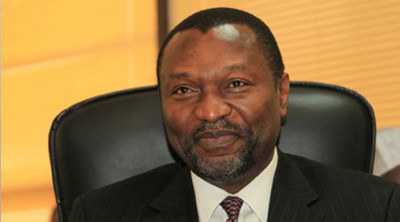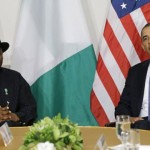Nigeria, UN Sign 5-year Sustainable Development Partnership Framework
Featured, Latest Headlines, News Thursday, July 27th, 2017
Photo caption: Nigeria’s Minister of Budget and National Planning, Senator Udoma Udo Udoma
(AFRICAN EXAMINER) – Nigeria and the United Nations (UN) on Thursday signed a five-year Sustainable Development Partnership Framework (UNSDPF) (2018-2022) which is a successor programme to the current United Nations Development Assistance Framework III (UNDAF III) (2014-2017) in Nigeria.
The signing ceremony, which was done in Abuja, was the result of the joint effort between the United Nations, the Government of Nigeria and partners over the past year in formulating the programme tagged the United Nations Sustainable Development Partnership Framework (UNSDPF) (2018-2022).
The Minister of Budget and National Planning, Senator Udoma Udo Udoma signed on behalf of the Nigerian Government while the UN Resident/Humanitarian Coordinator in Nigeria, Mr Edward Kallon, signed alongside other UN Systems Directors in Nigeria, for the United Nations.
The UNSDPF has three strategic priority result areas which are: Governance, Human Rights, Peace and Security; Equitable Quality Basic Services and Sustainable and Inclusive Economic Growth and Development.
The Minister noted that the process for development of the UNSDPF which crystallised in the signing of the Document involved extensive consultations between the Nigerian Government and the UN System and that the consultations allowed for sharing of experiences and for value addition to the development of the UNSDPF.
He also noted that the UNSDPF aligns with, and took cognisance, of the main objectives of Nigeria’s Economic Recovery and Growth Plan (ERGP).
Senator Udoma told the UN team that his Ministry is currently working on the implementation plan for the ERGP which has the key objectives of restoring growth, investing in our people and building a globally competitive economy; pointing out that the Plan defines the country’s economic trajectory for the next four years and seeks to take the Nigeria economy out of recession unto a path of sustained, inclusive and diversified growth.
“The aspiration is to make Nigeria a productive Nation: A nation where we grow what we eat and consume what we produce. The growth we are targeting is an inclusive one in line with the Sustainable Development Goals. A growth that is pro-poor, employment generating and people centred”, he added.
In his remarks, the UN Systems Coordinator, Mr Kallon, confirmed that the UNSDPF is fully aligned with the ERGP, Vision 2020, the Sustainable Development Goals (SDG), Africa Union Agenda 3063 and other internationally agreed declarations.
He explained that based on joint rigorous country analysis, extensive geo-political consultations, the UNSDP truly reflects Nigeria’s changing economic, social and environmental conditions and is designed as a strategic framework to assist address Nigeria’s developmental and humanitarian challenges, leveraging on UN leadership, comparative advantages and capacity assessment.
Mr Kallon said the three strategic priority results were selected together with nine specific baselines, targets and indicators. “The UNSDPF is a US$4.3 billion estimated document consisting of required, available and expected funding to implement the nine outcomes and to deliver the contribution of the UN in Nigeria for the next five years”, he added.
According to him, the proposed coordination mechanism is designed to be fully aligned with the principles of ‘Delivering as One’ (DaO) with government’s own monitoring and delivery mechanisms.
He said the UNSDPF process continues with the roll-out of a Work Plan that should facilitate joined up activities to maximize the impact of the UN system in providing technical support, policy and advisory services and strengthen national capacity to deliver services.
He explained that the UNSDPF has set out the broad areas of UN assistance to the development aspirations of the people and government of Nigeria as enshrined in the ERGP and Vision 2020. “The Joint Work Plan and Country Programmes of the various UN agencies will operationalise this partnership framework”, he said.
Related Posts
Short URL: https://www.africanexaminer.com/?p=40237






















